Attraverso il nostro store puoi supportare il forum e nel contempo, ottieni un simpatico gadget da poter utilizzare!

CLICCA QUI
utilizza il codice jb20
e ottieni subito uno
sconto del 20%
su tutti gli articoli!

CLICCA QUI
utilizza il codice jb20
e ottieni subito uno
sconto del 20%
su tutti gli articoli!
-
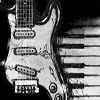 Classifica:miglior musicista, miglior chitarrista blues,...
di Ombra/luce
Classifica:miglior musicista, miglior chitarrista blues,...
di Ombra/luce
[02 Febbraio, 2026, 10:08 PM] -
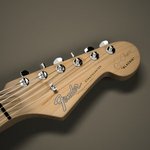 Suonare nello stile di : Buddy Guy
di Jessie_Greg_Music
Suonare nello stile di : Buddy Guy
di Jessie_Greg_Music
[02 Febbraio, 2026, 10:05 PM] -
 Le foto della nostra strumentazione !
di Santano
Le foto della nostra strumentazione !
di Santano
[02 Febbraio, 2026, 09:22 PM] -
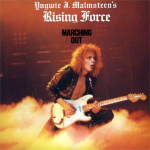 Refret(tiamo)
di robland
Refret(tiamo)
di robland
[02 Febbraio, 2026, 02:34 PM] -
 Oggi ricordiamo una Leggenda... Gary Moore.
di robland
Oggi ricordiamo una Leggenda... Gary Moore.
di robland
[01 Febbraio, 2026, 02:40 PM] -
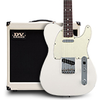 Billy Cobham
di Vu-meter
Billy Cobham
di Vu-meter
[31 Gennaio, 2026, 11:05 PM] -
 Philip Sayce
di Jessie_Greg_Music
Philip Sayce
di Jessie_Greg_Music
[31 Gennaio, 2026, 04:50 PM] -
 Collegamento e posizione ideale dei pedali
di LawHunter
Collegamento e posizione ideale dei pedali
di LawHunter
[31 Gennaio, 2026, 03:31 PM] -
 Le radici del blues elettrico
di Donatello Nahi
Le radici del blues elettrico
di Donatello Nahi
[31 Gennaio, 2026, 02:38 PM] -
 epiphone les paul standard outfit ADCB
di doctorwho
epiphone les paul standard outfit ADCB
di doctorwho
[31 Gennaio, 2026, 07:57 AM] -
 COMING SOON: Fulltone OCD Germanium
di Prosit
COMING SOON: Fulltone OCD Germanium
di Prosit
[30 Gennaio, 2026, 08:06 PM] -
 True temperament, la differenza si sente!
di attonauta
True temperament, la differenza si sente!
di attonauta
[29 Gennaio, 2026, 11:10 PM] -
 Ciao a tutti.
di attonauta
Ciao a tutti.
di attonauta
[29 Gennaio, 2026, 11:07 PM] -
 Amplificatori valvolari... ma come fate a sopportarli??...
di robland
Amplificatori valvolari... ma come fate a sopportarli??...
di robland
[29 Gennaio, 2026, 09:16 PM] -
 Digitech Trio+ Band Creator + Looper
di Vu-meter
Digitech Trio+ Band Creator + Looper
di Vu-meter
[28 Gennaio, 2026, 08:54 AM] -
 Roland Jazz Chorus 40w - impressioni d'uso
di robland
Roland Jazz Chorus 40w - impressioni d'uso
di robland
[27 Gennaio, 2026, 05:00 PM] -
 Mostraci la tua pedaliera!!!
di giulio.giammusso
Mostraci la tua pedaliera!!!
di giulio.giammusso
[27 Gennaio, 2026, 01:15 AM] -
 Gilbert, Satriani e altri. Virtuosi o shredder? Opinioni...
di robland
Gilbert, Satriani e altri. Virtuosi o shredder? Opinioni...
di robland
[26 Gennaio, 2026, 10:04 PM] -
 Alla ricerca di un Vibe
di robland
Alla ricerca di un Vibe
di robland
[26 Gennaio, 2026, 09:57 PM] -
 I modi - cosa significa suonare modale
di Vu-meter
I modi - cosa significa suonare modale
di Vu-meter
[25 Gennaio, 2026, 10:04 AM] -
 Eccomi qua
di Maff
Eccomi qua
di Maff
[24 Gennaio, 2026, 03:32 PM] -
 Vibly
di Nadir
Vibly
di Nadir
[23 Gennaio, 2026, 05:06 PM] -
 Jimmie Vaughan
di Donatello Nahi
Jimmie Vaughan
di Donatello Nahi
[23 Gennaio, 2026, 01:10 PM] -
 Manutenzione Pedalboard
di Santano
Manutenzione Pedalboard
di Santano
[22 Gennaio, 2026, 06:06 PM] -
 Cosa ascoltano ultimamente i Jamblers?
di Vu-meter
Cosa ascoltano ultimamente i Jamblers?
di Vu-meter
[22 Gennaio, 2026, 03:01 PM] -
 Matteo Mancuso
di robland
Matteo Mancuso
di robland
[21 Gennaio, 2026, 03:18 PM] -
 VENDO Flashback X4 Delay
di Vu-meter
VENDO Flashback X4 Delay
di Vu-meter
[21 Gennaio, 2026, 09:00 AM] -
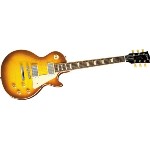 Gary Clark Jr
di AngeloANC
Gary Clark Jr
di AngeloANC
[20 Gennaio, 2026, 04:56 PM] -
 Providence Chrono delay
di robland
Providence Chrono delay
di robland
[20 Gennaio, 2026, 08:11 AM] -
 MI cantino basso
di Antonello
MI cantino basso
di Antonello
[18 Gennaio, 2026, 07:34 PM]


